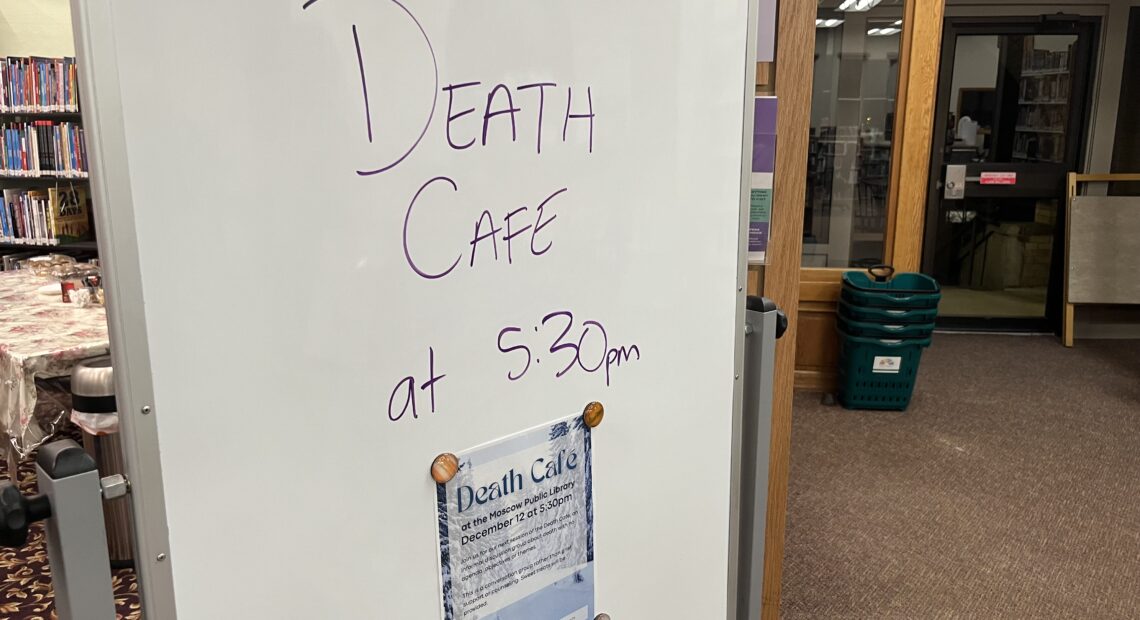
Death Cafes offer a space to discuss the end of life
Listen
(Runtime 0:54)
Read
Around the world, people gather at places like libraries and coffee shops to sip tea, eat treats — and talk about death.
While perhaps unfamiliar to some, “Death Cafes” are giving people a place to talk openly about the end of life. At the Moscow Public Library, a group gathers four times a year to host their own Death Cafe.
“We found that the community responded really well to it,” said Heather Blamires, who led a recent Death Cafe at the Moscow Public Library.
Death Cafe facilitators like Blamires are responsible for setting the cafe’s ground rules, as well as coaxing the conversation along if it falls into a lull. Blamires said the cafes offer a space to share thoughts on death, without the fear that usually surrounds the subject.
“We’re all going to experience it, in some way, shape, or form, or for ourselves. That’s just inevitable,” she said.
Death Cafes have been active since 2011, originating in the United Kingdom. Each one is different — conversations are driven entirely by the people who attend them.
Michael Riley, a retired middle school teacher, attended the recent Death Cafe in Moscow.
“Every time I come to these, there’s just such an eclectic mix of people,” he said. “I think it’s a powerful way to learn and to tell stories, I love storytelling.”
Riley said he thinks people are wary of opening themselves up too much when it comes to talking about death.
“I think we’re kind of divorced from, like, the natural world in a lot of ways, ” he said. “We’re not used to death anymore. We’re not used to seeing it.”
Topics at Death Cafes can range from expectations in grief and living more intentionally, to how relationships change with people who’ve died.
While the cafes don’t claim to be support groups, Blamires noted that talking about death in a casual setting can be comforting, especially for someone processing a recent loss.
In person and online Death Cafes across the Northwest can be found at deathcafe.com.
















